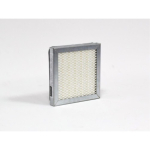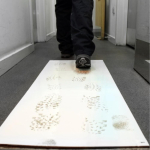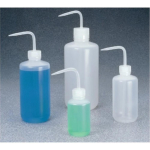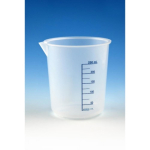Analysis Note
Protein determined by biuret
Application
Butyrylcholinesterase from equine serum has been used in a microcalorimetric study of the inhibition of butyrylcholinesterase by paraoxon. This enzyme has also been used in a study to investigate the synthesis and inhibition of cholinergic enzymes. Selective inhibition of BChE activity can be used in the detection of organophosphates. Its use in the treatment of organophosphate toxicity has shown clinical potential, as there is a correlation between the blood level of BChE in humans and the degree of protection against toxic nerve agents. There has also been an interest in the roles of cholinesterases with regard to Alzheimer’;s disease. Investigations into selective inhibitors may provide a clearer picture of the physiological role of BChE in both healthy and diseased individuals. This product has been used for the screening of cholineesterase inhibitors in selected fruits and vegetables, for restoring cognitive function and improving memory. It has also been used to develop a butyrylcholinesterase and choline oxidase immobilized bio-sniffer for the detection of nicotine. Nicotine inhibits BChE activity. A decrease in the byproducts of BChE activity reflects the volume of nicotine.
Biochem/physiol Actions
Butyrylcholinesterase (BChE) can, unlike AChE, efficiently hydrolyze larger esters of choline such as butyrylcholine and benzoylcholine. The enzyme is activated by Ca2+ and Mg2+ and the activity is constant over the pH range 6.0-8.0. It is inhibited by betaine, nicotine, organophosphates, and carbamates.
Mutations inbutyrylcholinesterase(BChE) gene results in the failure of respiratory system, prolonged paralysis and apnea.
General description
Butyrylcholinesterase (BChE) is a serine hydrolase that is structurally similar to acetylcholinesterase (AChE), but differs in substrate specificities and inhibitor sensitivities. The enzyme is a tetrameric glycoprotein with four equal subunits (110 kDa each). It is also termed as pseudocholinesterase. It is produced in the liver. It is found in blood, the synapse of neuromuscular junctions and glia cells and axons of white matter.
Packaging
1200, 6000, 12000 units in poly bottle
Physical form
Lyophilized powder containing buffer salts
Preparation Note
This product is prepared from equine serum using ammonium sulfate fractionation and supplied as a lyophilized powder.
Unit Definition
One unit will hydrolyze 1.0 µmole of butyrylcholine to choline and butyrate per min at pH 8.0 at 37 °C. The activity obtained using butyrylcholine as substrate is ~2.5 times that obtained using acetylcholine.












